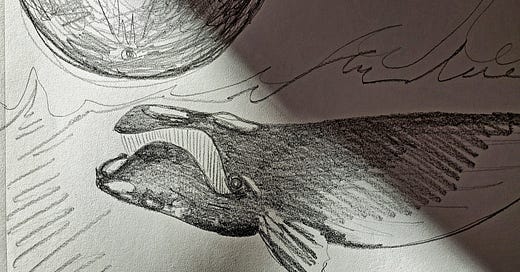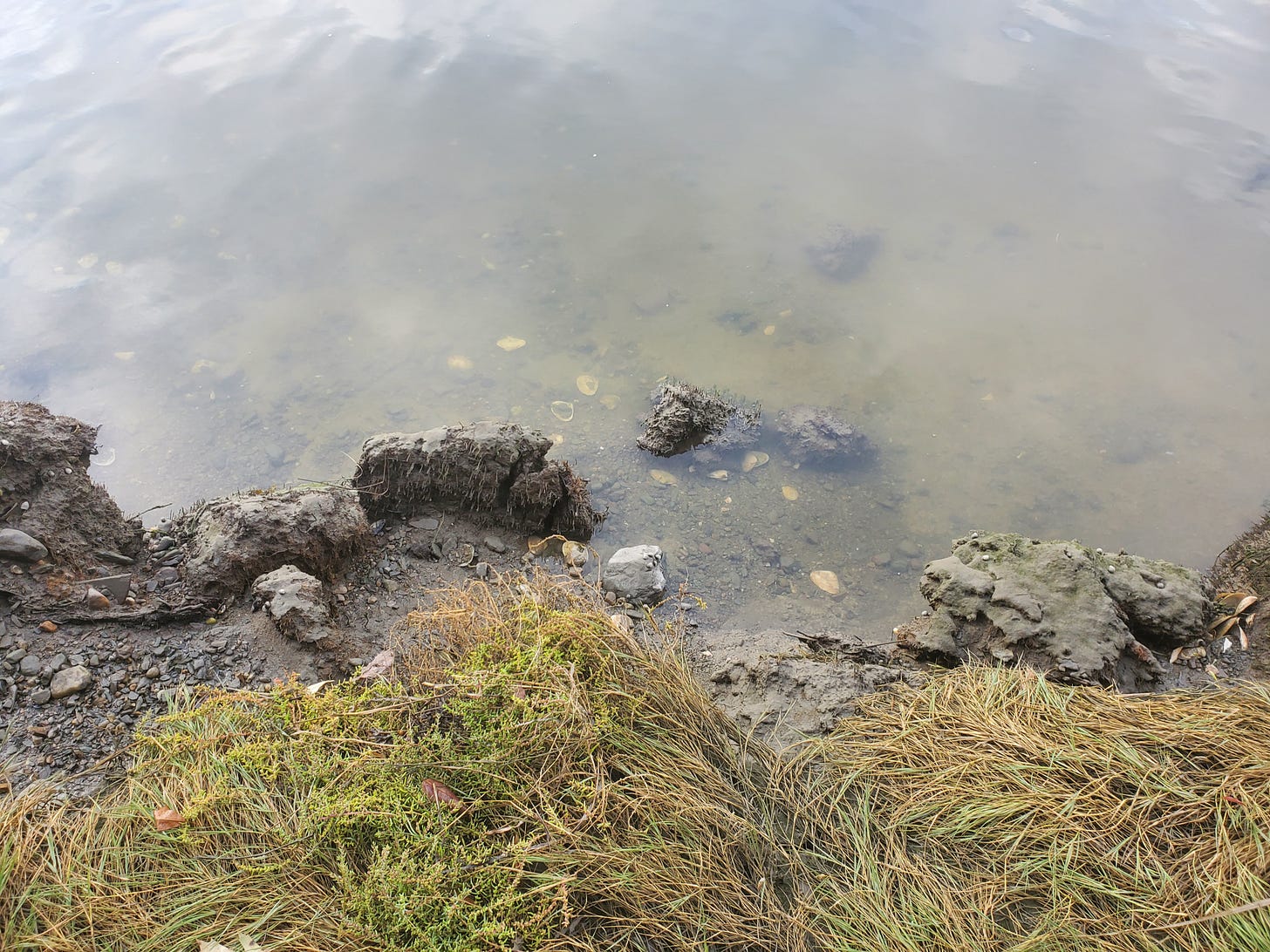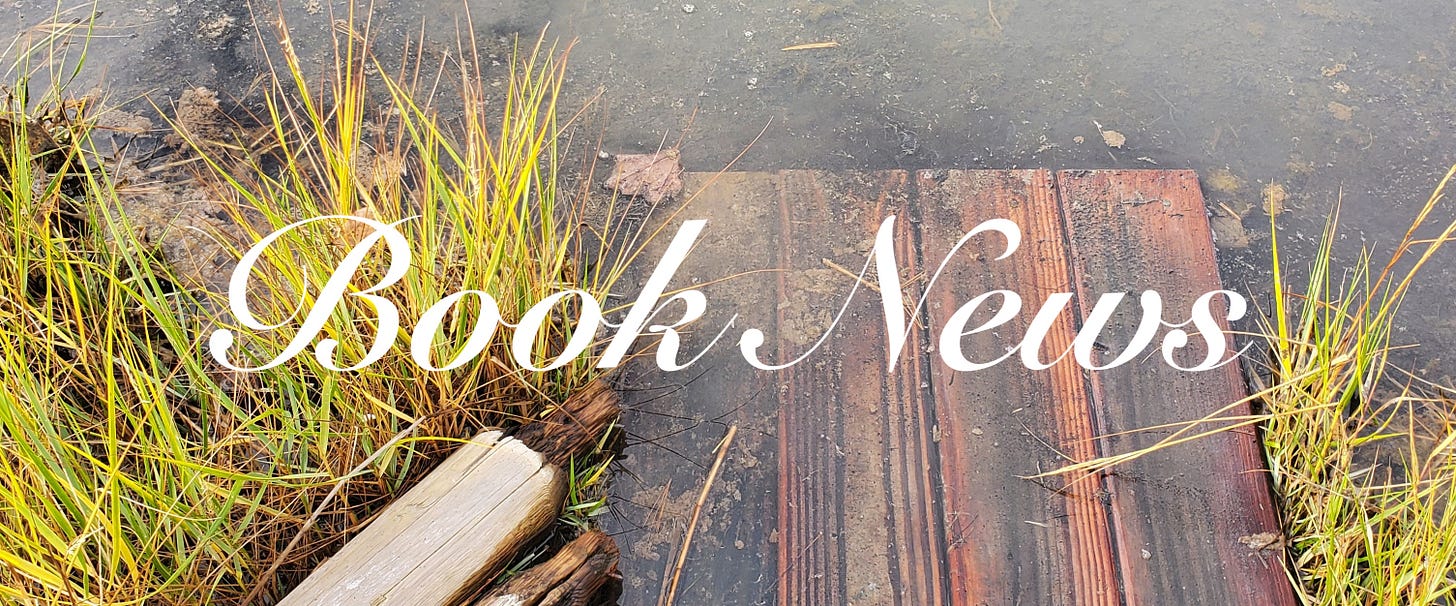“For animism—the instinctive experience of reciprocity or exchange between the perceiver and the perceived—lies at the heart of all human perception.” — David Abram, “Magic and the Machine”
All of our children—even here in 21st century North America—come into this world as little animists: they encounter a world that is alive and speaking. My two-year-old daughter says “hi” to chipmunks, trees, and ducks. She plays hide and seek with the moon. She allows white pine needles to tickle her cheeks.
This is neither new nor radical. But many of us, myself included, have forgotten how to hear, and heed, the wider world around us.
This newsletter revolves around the topics I think most about these days:
what it means to mother in a time of climate breakdown / “mother” as a noun, a verb, an orientation, a practice
nonhuman mothers
sacred places / axis mundi and place-based practices of care and attention
the ecological underpinnings of faith traditions
joy, grief, and grounded hope
THE RIGHT WHALE & THE MOON:
notes on hope
“Mama, get me the moon.”
Outside around the fire, we’re pretending to fill our coat pockets with stars. The days have grown short, so by 5:00 pm Aspen is reaching up to pluck distant lights from the sky. The same motion she used to pick July raspberries.
The frank expectation of her request is what moves me: no sense that she’s asked the impossible. She asks, rather, with the same tone of “more noodles” over dinner. Her father and I exchange a smile.
I reach up and cup my palm around the crescent moon, thinking I would love nothing more than to bring the impossible down to my child’s waiting hand.
I’m thinking, too, about one of my own requests of late, one I haven’t uttered aloud, but repeat again and again to myself. It’s a request that sends me reaching for something that, at moments, seems as impossibly distant as winter stars:
“God, save the right whales.”
I’ve been researching North Atlantic right whales for a chapter in my book. It is a painful learning. With fewer than 350 individuals left, right whales are nearing extinction. More are dying than are being birthed into the world as the population undergoes what is called an “Unusual Mortality Event” or UME.
The passiveness of that phrase is unsettling; the acronym feels almost cruel. For these beings are dying at our hands, and our hands alone. Ship strikes. Entanglements in fishing gear. It’s an active undoing.
Critically, the population continues to lose its females of reproductive age—whales that could go on to have another dozen or more calves in their long lives. In other words: The right whales are losing their mothers.
I’ve been speaking to some of the scientists who have spent decades working to save these animals, searching for them, documenting them, physically disentangling them from hundreds of feet of rope, testing ropeless fishing gear that won’t wrap itself through a right whale’s baleen, prohibiting her from feeding herself. These are people who might find a whale they have known for thirty years who has been literally torn apart by a ship’s motor, and then find it in themselves to be back on the ocean the next day, pulled over the wide water by the knowledge that there are more whales out there, that there is still more to be done.
They are pulled, too, I think, by love.
All of them tell me they have hope for this species.
Hope can seem such a frivolous word. Light as a feather, never touching the ground. But this hope on behalf of whales is not passive. It is, I think, a lifeline. A way of continuing to move through darkness.
Hope in the face of unimaginable loss can be a beacon that calls to the best in ourselves and the best in others. It can enable us to decenter ourselves in service to other forms of life.
No, hope alone will not save the right whales. But it might help us envision and then bring about a future in which they are present. For it is we who must do the work.
And what is the work of active hoping? I think it must, in part, span times and tenses. It at once points our attention to the future, while being rooted in understanding—and reckoning with—the past. And its doing—its embodiment; the answer to the call of that active hope—must always be in the present tense. For here are the whales, swimming and feeding and nursing, now.
Now, they are still here.
This sort of love-grounded-active-hope is not so different from motherhood in this time of ecological crisis.
For here, too, is my daughter. I hope for her a healed world. And so I must do my part in the healing. Here she is, now: listening, seeing, touching, learning language in a world both burning and beautiful.
And in writing this I realize I have to look closer at my prayer: “God, save the right whales.” And also at another prayer that sits and glows at the very center of my heart, a place I sometimes hardly dare look for how tender and vulnerable it is: “God, watch over my daughter.”
I have to look closer at these supplications because these phrases can carry their own troubling passivity. It is not always quite enough to pray.
One night this December, I imagined a world where I could reach up and pull the moon into my daughter’s hand.
Every night, night after night after night, I lay in bed and imagine a world where my daughter thrives on a thriving Earth. In this world, I imagine a right whale giving birth to a calf, nursing him for one turn around the sun, teaching him the old migration routes, and eventually ushering him forth to his own long life in the vast sea.
One of these worlds is not impossible.
My debut book, REBIRTH: Mothering Through Ecological Collapse, will be published by Broadleaf Books in 2024!
In an era of ecological breakdown and rising climate anxiety, when the future is increasingly uncertain, what does it mean to become a mother? How can we love, nurture, and hope through collapse?
REBIRTH sets out to locate a language, orientation, and spiritual practice of mothering in a time of widespread environmental breakdown—braiding together stories from the forests, skies, and seas of the eastern United States with my own experience as a new mother in a time of urgent ecological crisis. I don’t pretend to know what the future holds. But I believe that, more than anything, it will need mothers (human and whale and tern and sugar maple).
This winter, I’m heading down to Georgia to see the right whale’s calving grounds. I’ll update again then!
Learn more about the book here.
Recent Writings
“Coming into Being: Reflections on Mothering in the Apocalypse” for Emergence Magazine
Tidbits of Reading & Listening
On Being: “What We Nurture” // A conversation between Krista Tippett and Jewish-Buddhist teacher and psychotherapist Sylvia Boorstein. Motherhood, wise action, self-care, and some great jokes.
W.S. Merwin, “For a Coming Extinction”
Emergency by Daisy Hildyard. // A stunning novel about the interconnectedness of all life on Earth, set in the English countryside.
A friend recently introduced me to the music of Abel Selaocoe // Harmonies and layered melodies between voice and cello unlike anything I’ve heard.
“The Inward Migration in Apocalyptic Times” by Alexis Wright // One of my favorite Emergence essays
Moby Dick by Herman Melville // (…only took me three years to finish it…a bit long)







Hi Chelsea, this moved me to tears. We really are on a knife edge, but so many look the other way, as if that makes it ok. Imagine a whole species losing their mothers, only 300 individuals still living... how terrible that must feel. Do the right whales know their own fragility, I wonder. Thank you for this beautiful writing. I have so much to catch up on. 💕
Delighted you are continuing to share what's happening with your daughter. I am a grandmother trying to keep the animist alive on all my family.